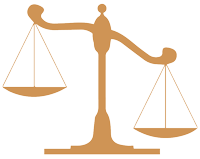
A trade secret is defined as knowledge that has been protected by reasonable methods under Section 134A. 002(6) of the Texas Uniform Trade Secrets Act. Because it adds value to the product or service, the information is useful. Trade secrets are becoming increasingly difficult to protect, thanks to the ability to electronically collect and share information in milliseconds. Regardless, intellectual property often is one of a company’s most valuable assets. Trade secrets, if properly preserved and protected, can help a company’s business succeed. In the absence of adequate safeguards and security practices, trade secret misappropriation could easily lead to the company’s failure. Formulas, developmental procedures, product designs, client lists, and marketing data are examples of trade secrets that can have immense value. A trade secret (1) has actual or potential economic value because it is not widely known and cannot be quickly ascertained by proper means by individuals who can benefit economically from its revelation or use, and (2) is the subject of reasonable attempts to protect its confidentiality under the circumstances. While patents can only protect an invention for a limited time, trade secrets can be protected indefinitely.
Theft, bribery, deception, espionage, or breach or solicitation of a breach of the obligation to maintain secrecy are all common methods of appropriating trade secrets. Trade secret attorneys in Houston, Texas offer both advice on identifying and protecting proprietary information as well as litigation services in cases of claimed proprietary information misappropriation. Courts value strong, genuine efforts over boilerplate forms and unenforced policy pronouncements, thus plan implementation is especially vital.
Throughout the United States and worldwide, trade secret and unfair competition cases are prosecuted and defended in a variety of courtrooms and arbitration forums. The development and implementation of a litigation strategy that successfully advances client objectives require a detailed grasp of proprietary information, such as manufacturing procedures, algorithms, process equipment, and software. The Uniform Trade Secrets Act (UTSA) standardized and regulated commercial claim criteria and remedies. Its structure has been accepted by 47 states, including Texas.
Texas courts apply a six-factor test to identify trade secrets:
- the extent to which the information is known outside the organization.
- the extent to which employees and others associated in the business are aware of it
- the extent of the safeguards put in place to protect the information’s secrecy
- the information’s worth to the business and its rivals.
- the amount of time and money spent creating the data
- the ease or difficulty with which the data may be appropriately collected or copied by others.
If real or imminent misappropriation occurs, injunctive action is available. An injunction can forbid the use of trade secret information, whether it is intended or not. An injunction may allow royalties to be paid as a condition for future usage in certain situations. Economic damages are determined by the trade secret’s worth and how much it affects the business. This could involve both genuine loss and unjust enrichment because of the use of the information. Royalties from the use of the information may be reasonable compensation.
Trade Secrets Lawyer Houston, TX
According to the Texas Uniform Trade Secrets Act, information cannot simply be declared a secret by the owner after it has been revealed. The corporation must demonstrate that it made reasonable efforts to safeguard the trade secret. Reasonability varies depending on the nature of the firm, the industry, and the value of the information. Hiring a reputable Houston, Texas trade secret attorney can protect you and provide piece of mind that your case is being properly handled.
